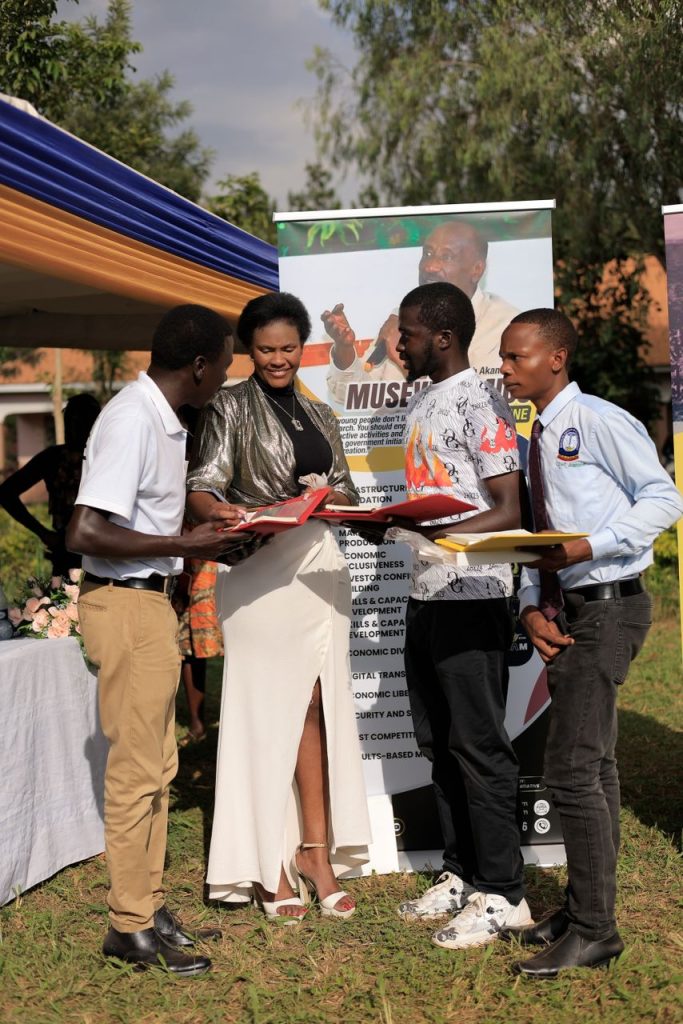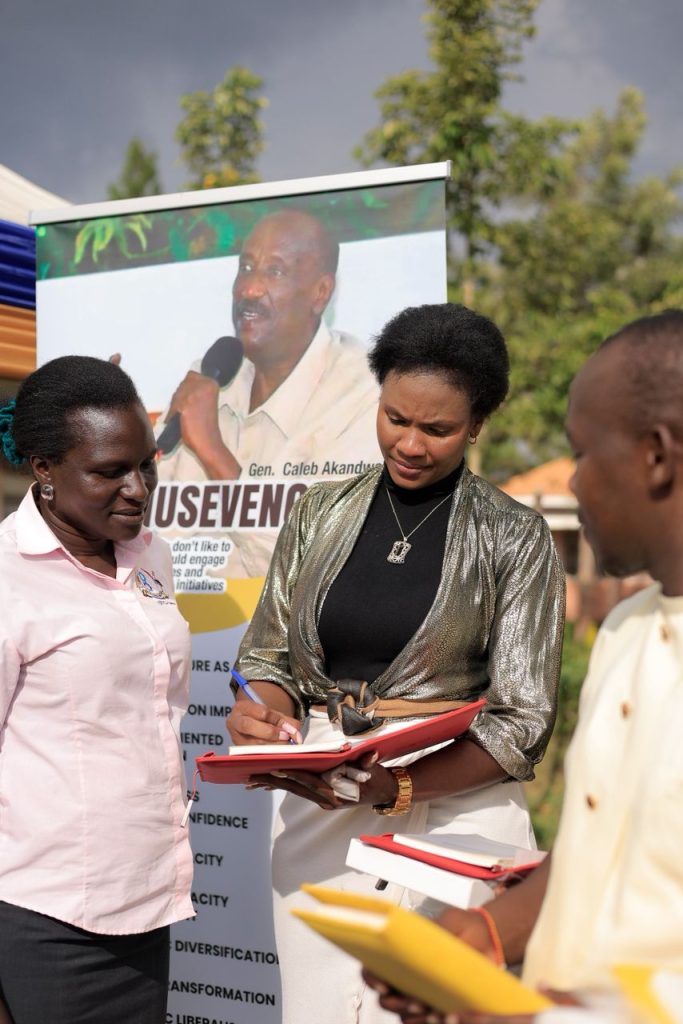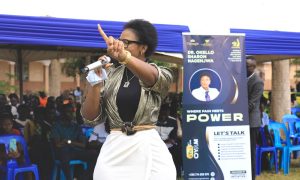Wildlife conservationist and social entrepreneur Dr. Okello Sharon Nagenjwa has urged university students to adopt a practical, people-first understanding of economic development, arguing that the principles of Musevenomics can be applied as a lifestyle rather than a technical framework.
Dr. Okello, who also founded the Triumph Women Initiative and the Nuwebiz Foundation, delivered the message during an economic empowerment lecture at Ebenezer University in Lira on Monday, where she launched a youth-focused campaign aimed at simplifying Musevenomics for learners across Uganda.
Speaking to a packed auditorium, she said the country’s development conversation should shift from theory to everyday practice.
“For me, Musevenomics is humanity,” she said. “It starts from the heart—integrity, skills, customer care—and ends with productivity and income. That is the meaning of ‘Heart Before the Harvest’.”

She explained that her interest in the subject deepened after an engagement with Gen. Caleb Akandwanaho (Salim Saleh), who challenged her to rethink Uganda’s progress in industrialisation and the current struggle to find markets for locally produced goods.
According to Dr. Okello, many young people find economic concepts intimidating, yet the essentials of wealth creation are present in their daily activities.
“It is not politics. It is not complicated economics. It is our life,” she noted. “You may not have cash capital, but skills are capital.”
She also described how she transformed personal struggles into the Triumph Women Initiative, a platform that documents stories of women overcoming hardship and repackages them into digital content and partnerships.
The campaign is primarily targeting university students, whom she described as “strategic agents of change” capable of transferring knowledge to their communities.
“University students will become ambassadors,” she said. “When they return home for holidays, they will take this message to their villages.”
She stressed that the movement is self-funded and not linked to any political financing.
“No coin has been given to me,” she said. “I love this doctrine because it works.”
Sedric Otolo, Director of Kakebe Technologies and co-organiser of the lecture, said Musevenomics offers useful guidance for Uganda’s emerging business class.
“It’s about ideas that help the country move forward,” he said. “Regardless of one’s course, business education is essential. Economics and ICT should be compulsory.”

Kabejja Dorcus, a medical student from Lira University who attended the training, said the lecture broadened her understanding of the role of creativity and innovation in a competitive job market.
“A skill can save a human,” she said. “We need practical training to survive when formal jobs are limited.”
Ebenezer University’s Academic Registrar, Dr. Joseph Esiana, said the institution welcomed the initiative, noting that more than 1,000 students received hands-on guidance in creativity, innovation, and business incubation.
“Musevenomics is the way to go for socio-economic transformation,” he said, recommending that the programme become an annual event with support for promising student projects.
Dr. Okello said her long-term goal is to help young people understand economics as a lifestyle grounded in discipline, skills, and service.
“I work for people—and in the process, I benefit,” she said. “Young Ugandans must move from subsistence to the money economy. This doctrine, if understood well, can take them there.”
The campaign has so far reached 12 institutions and 1,600 students, with plans to expand to more universities and tertiary institutions in the coming months.























